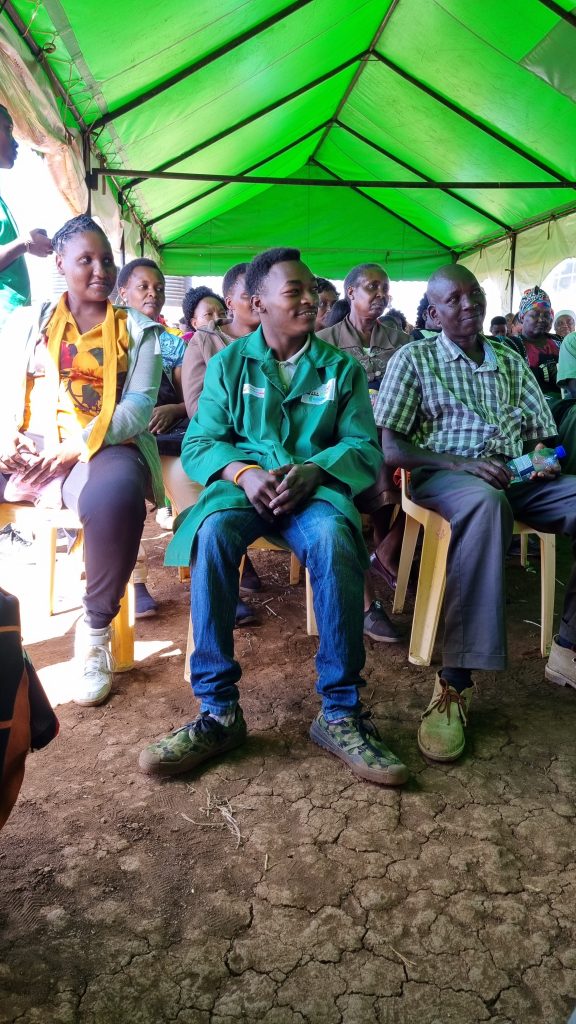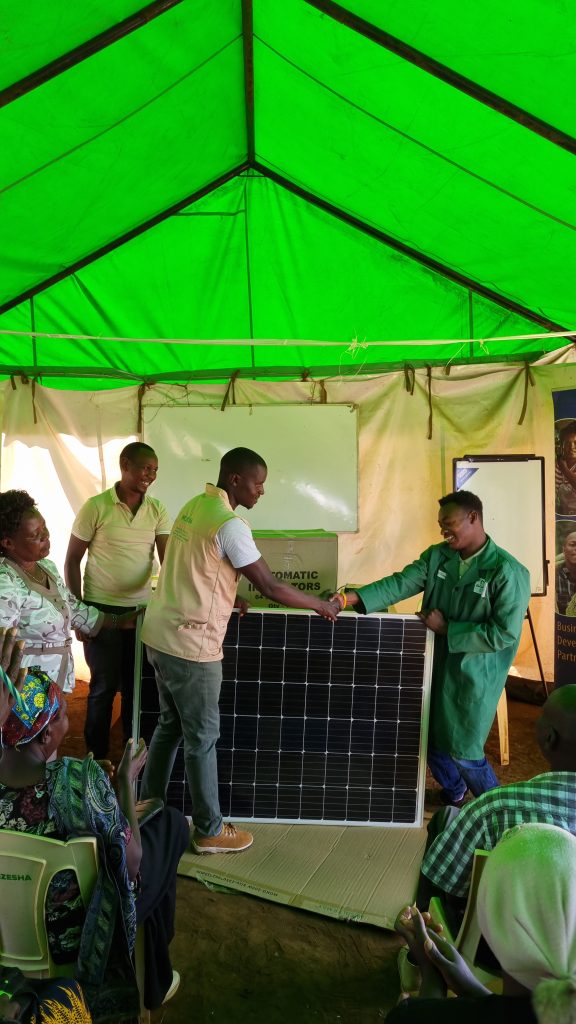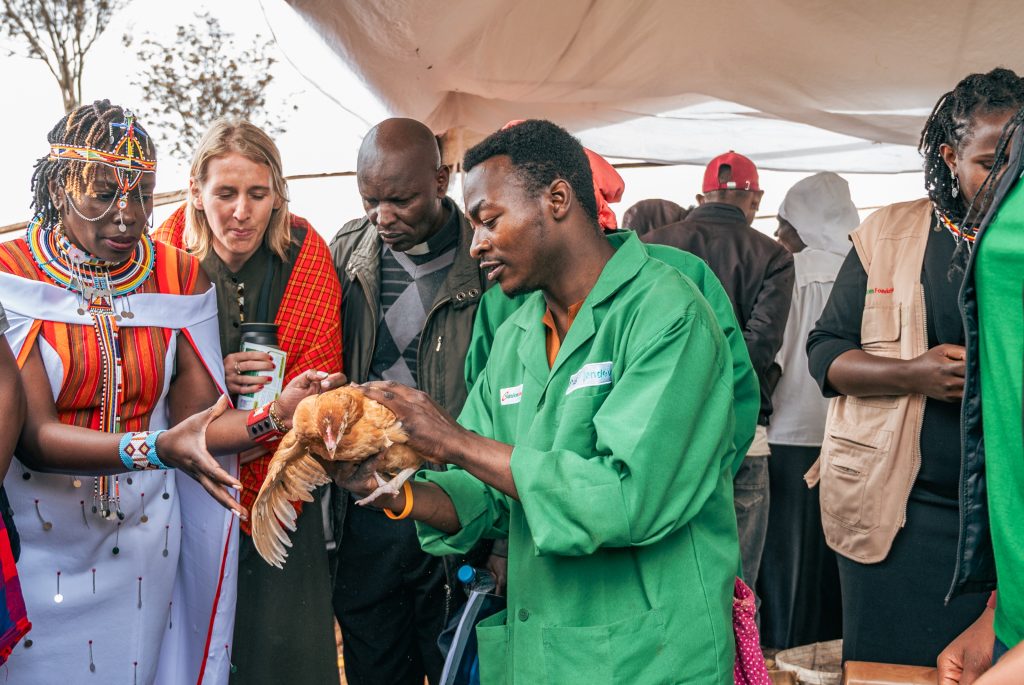
Meet Gilbert Gitau, a 21-year-old from Oloitoktok, Kenya, whose unwavering determination and resilience have turned adversity into inspiration for the community around him and financial
freedom. His journey is a remarkable testament to the life-changing impact of exposure to cutting-edge renewable solar energy technologies, capacity building, and the steadfast support of
a tight-knit community.
Meet Gilbert Gitau, a 21-year-old from Oloitoktok, Kenya, whose unwavering determination and resilience have turned adversity into inspiration for the community around him and financial
freedom. His journey is a remarkable testament to the life-changing impact of exposure to cutting-edge renewable solar energy technologies, capacity building, and the steadfast support of
a tight-knit community.
In early 2023, Gitau’s life took a positive turn when he joined the Red Cross program in Oloitoktok as a volunteer. Specifically, he became part of the Adherence Treatment Support
Program facilitated by the Africa Pro-Poor Tourism Development Center. In this role, he dedicated himself to providing drug treatment literacy to individuals living with HIV and AIDS,
offering support and hope to those in need.
“We have never met a more determined and hardworking person like Gitau; his positive energy and happiness are contagious,” said John, his colleague. “We are lucky to have him in our team.”
Discovery of Wezesha

Gitau’s path to transformation was further illuminated when he learned about the Wezesha program from a friend. Hesitance, doubt, and uncertainty were his responses due to the program’s focus on agriculture. However, following encouragement from his friend to visit and explore what the program offered proved to be a turning point for Gitau.
Gitau’s path to transformation was further illuminated when he learned about the Wezesha program from a friend. Hesitance, doubt, and uncertainty were his responses due to the program’s focus on agriculture. However, following encouragement from his friend to visit and explore what the program offered proved to be a turning point for Gitau.
Empowering Rural Communities
Based on the baseline studies conducted by AIS on the Wezesha beneficiaries, approximately 85% of women participating in the program were involved in chicken farming. These women revealed a high interest in poultry, presenting a business demand that Gitau quickly identified and spurred his business spirit. Rural poultry farming plays a crucial role in the livelihoods of resource-poor farmers, enhancing food nutrition, generating income, and providing organic manure for crop production.
Inspired by Home Economics training at Wezesha, Gitau plans to establish a small kitchen garden at his home. He intends to manage it independently and utilize organic manure from his
poultry farm to produce nutritious vegetables for sale. This integrated approach reflects his determination to maximize the benefits of sustainable agriculture.

In recognition of Gitau’s dedication to Wezesha, AIS generously contributed 50% of the funds needed to purchase a 64-egg solar incubator valued at Ksh. 60,000. Gitau’s friends joined forces
through a ‘go-fund-me platform’ to raise the remaining balance for the incubator unit. In June, GIZ and AIS presented the solar egg incubator to Gitau and his grandmother at a
heartfelt handover ceremony held at the Wezesha demo farm
“I appreciate each and every hand that has touched my life and for trusting in me and seeing a future in me.” Said Gitau when he was handed the incubator.
Wezesha plans to incubate Gitau’s hatchery business at the farm, providing him with expert technical guidance, market access, and support from the Ministry of Agriculture’s agribusiness
program. With determination, newfound knowledge, and community backing, Gitau’s entrepreneurial spirit is poised to flourish. Gilbert Gitau’s journey from adversity to empowerment exemplifies the resilience of the human spirit. His story reminds us that individuals like Gitau can overcome challenges and contribute positively to their communities with the proper support and determination.

